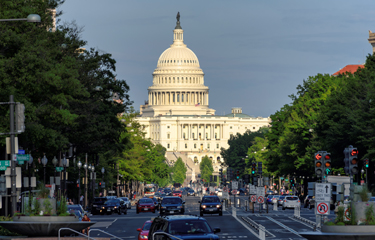Editor's Note: Due to a reporter’s error, the nature of the Senate vote was reported incorrectly. The 67-32 vote was to start debate on the infrastructure bill. We have updated the article and regret the error.
Washington, D.C., U.S.A was a busy place Thursday, 29 July, as lawmakers in both the U.S. House of Representatives and U.S. Senate moved forward on large appropriation bills, both of which included seafood-related line-items and initiatives.
In the House, a package of seven spending bills passed by a 219-208 vote. The appropriations package included funding for such agencies as the Department of Agriculture, Environmental Protection Agency, Food and Drug Administration and Department of Interior. Among the projects in the bill is a USD 6 million (EUR 5.1 million) initiative secured by Louisiana U.S. Reps. Garret Graves (R), Steve Scalise (R), and Troy Carter (D) that would redirect dredged sediment to coastal restoration projects in the state instead of having it dumped in the Gulf of Mexico.
In a speech on the House floor Tuesday, 27 July, Carter told his colleagues the three lawmakers teamed up in a bipartisan effort because “rebuilding his state’s coastlines [is] critical to the state’s way of life.”
“We know that our fisheries and our fishermen depend on a robust coast,” Carter said. “We know that by protecting it, we protect our economy and we protect those things that are critically important to the state of Louisiana.”
In addition, the House bill includes a provision that keeps the U.S. Bureau of Ocean Energy Management from allocating resources for any offshore drilling expansion in unleased parts of the Atlantic, Pacific, and Arctic oceans, as well as the eastern half of the Gulf of Mexico.
Fishery councils, fishermen, and other industry stakeholders have been part of a broad coalition that’s worked to stop the expansion of oil exploration in areas inside the U.S. exclusive economic zone with existing fisheries.
“While there is still work to be done, the inclusion of this language is a significant step toward ending dirty and dangerous offshore drilling,” said Oceana Campaign Director Diane Hoskins in a statement. “The expansion of offshore drilling is incompatible with any serious effort to combat the climate crisis and threatens coastal jobs and economies that rely on a healthy ocean.”
While the House approved its spending bill, the Senate agreed to start debate on a bipartisan infrastructure spending bill by a 67-32 margin. Among the initiatives included in the USD 1 trillion (EUR 843.5 billion) package are USD 492 million (EUR 415 million) for a NOAA National Coastal Resiliency Fund and USD 200 million (EUR 168.7 million) for a marine debris program. Several ecosystem resiliency projects are also included in the bill, such as USD 172 million (EUR 145.1 million) for a pacific coastal salmon recovery fund.
Senate leaders have said they hope to pass the infrastructure bill before breaking for their summer recess, which is slated to start in the second week of August.
Photo courtesy of Lucky-photographer/Shutterstock







